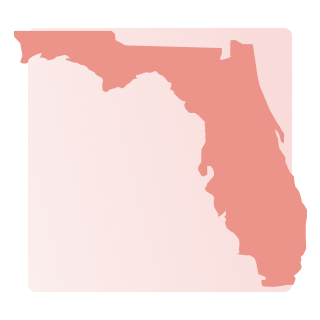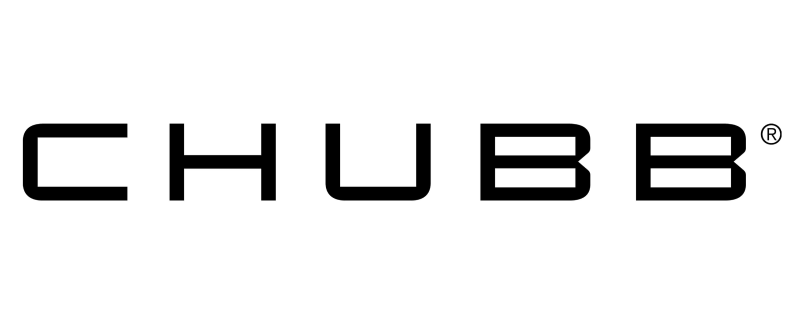Powered by Coverage.com (NPN: 19966249)
Coverage.com, LLC is a licensed insurance producer (NPN: 19966249). Coverage.com services are only available in states where it is licensed. Coverage.com may not offer insurance coverage in all states or scenarios. All insurance products are governed by the terms in the applicable insurance policy, and all related decisions (such as approval for coverage, premiums, commissions and fees) and policy obligations are the sole responsibility of the underwriting insurer. The information on this site does not modify any insurance policy terms in any way.
Best homeowners insurance in Florida



Powered by Coverage.com (NPN: 19966249)
Coverage.com, LLC is a licensed insurance producer (NPN: 19966249). Coverage.com services are only available in states where it is licensed. Coverage.com may not offer insurance coverage in all states or scenarios. All insurance products are governed by the terms in the applicable insurance policy, and all related decisions (such as approval for coverage, premiums, commissions and fees) and policy obligations are the sole responsibility of the underwriting insurer. The information on this site does not modify any insurance policy terms in any way.
Compare the best homeowners insurance companies in Florida
Florida homeowner’s insurance problems are twofold: there aren’t many new policies available compared to other states, and the ones that exist are expensive. Bankrate analyzed average rates from Quadrant Information Services and found that Florida homeowners pay $5,838 per year for a $300K homeowners insurance policy.
The top 5 home insurance companies in Florida

Bankrate Score
Avg. annual premium
$300K dwelling coverage
Avg. monthly premium
$300K dwelling coverage
Why Armed Forces made our list: Home insurance policies from Armed Forces are only available to military members, veterans and their qualifying family members. However, if you qualify, you may want to get a quote; Armed Forces offers competitive rates in the Sunshine State.
| Bankrate Score | 4.6 |
| J.D. Power | |
| AM Best Rating |
Armed Forces standout features
- Only available to qualifying military members and veterans
- May be available to military family members
- Unique endorsements like animal liability

Bankrate Score
Avg. annual premium
$300K dwelling coverage
Avg. monthly premium
$300K dwelling coverage
Why Chubb made our list: Chubb is one of our top picks for Florida home insurance due to its Masterpiece homeowners insurance policy and other bespoke services for policyholders with high-value homes and assets that need more extensive coverage. Chubb also won the Bankrate Award for Best for High-Value Homes.
| Bankrate Score | 4.6 |
| J.D. Power | 677/1,000 |
| AM Best Rating | A++ |
Chubb standout features
- Extended replacement cost coverage included
- Private flood insurance available
- Cash settlement option available for total loss

Bankrate Score
Avg. annual premium
$300K dwelling coverage
Avg. monthly premium
$300K dwelling coverage
Why State Farm made our list: State Farm has an impressive network, with over 19,000 local agents across the U.S. and offices in over 200 cities in Florida, there is likely to be an agent available near you. Whether you prefer to do business in person or speak with someone knowledgeable of nuances specific to the Florida homeowners market, State Farm can likely help.
| Bankrate Score | 4.1 |
| J.D. Power | 657/1,000 |
| AM Best Rating | A++ |
State Farm standout features
- Extended dwelling coverage included
- Largest home insurance company in the country
- Ranked above average for customer satisfaction
Bankrate Score
Avg. annual premium
$300K dwelling coverage
Avg. monthly premium
$300K dwelling coverage
Why Progressive made our list: Progressive scored above average in both categories of the 2025 J.D. Power Insurance Digital Experience Study. Its mobile app is also highly rated on both the App Store and Google Play, making it a strong choice for homeowners who prefer to manage their policy online.
| Bankrate Score | 3.7 |
| J.D. Power | 627/1,000 |
| AM Best Rating | A+ |
Progressive standout features
- Highly-rated digital tools
- Weaker offerings compared to other national carriers
- Mixed customer service ratings

Bankrate Score
Avg. annual premium
$300K dwelling coverage
Avg. monthly premium
$300K dwelling coverage
Why Tower Hill made our list: Tower Hill and, more specifically, Tower Hill Insurance Exchange — its Florida-specific reciprocal — is Bankrate's choice for best customizable coverage due to the availability of options like landscaping coverage and trampoline liability. Coverage option availability may differ through Tower Hill Exchange, so it’s worth contacting an agent to learn how you could build out your policy.
| Bankrate Score | 3.4 |
| J.D. Power | 565/1,000 |
| AM Best Rating |
Tower Hill standout features
- Florida-based company
- Sells private and government-backed flood policies
- Equipment breakdown coverage available
Compare home insurance rates
Answer a few questions to see personalized rates from top carriers.
Powered by Coverage.com (NPN: 19966249)
Coverage.com, LLC is a licensed insurance producer (NPN: 19966249). Coverage.com services are only available in states where it is licensed. Coverage.com may not offer insurance coverage in all states or scenarios. All insurance products are governed by the terms in the applicable insurance policy, and all related decisions (such as approval for coverage, premiums, commissions and fees) and policy obligations are the sole responsibility of the underwriting insurer. The information on this site does not modify any insurance policy terms in any way.
Common Florida home insurance problems
Florida homeowners have been dealing with a turbulent home insurance market for nearly three decades for several reasons, the biggest being why so many Americans flock to Florida for vacation every year — location.
Florida has 1,350 beautiful miles of coastline with flat topography and limestone bedrock. That, combined with the warm waters of the Gulf of Mexico, means that about 77 percent of Floridians live on land inherently vulnerable to hurricanes and flooding. Location aside, here are some other common Florida homeowner problems:
Bankrate Insight
It’s a common misconception that you can file a claim for flood damage under your home insurance policy. However, that isn’t the case. Floods are not covered by your home insurance policy — if you don’t have flood insurance, you’ll need to pay for flood repairs out of pocket. In Florida, homeowners can also choose to exclude wind from their insurance policy. If you go that route, you’ll need a wind insurance policy or be prepared to pay for wind damage on your own.
Cheapest home insurance companies in Florida
Securing cheap homeowners insurance in Florida might be challenging. However, knowing which companies have more affordable average premiums can be a helpful starting point on your shopping journey. Remember that some providers cover wind loss from hurricanes, while others exclude this coverage. These exclusions can vary between ZIP code and policy type and could significantly impact insurance rates.
How to get cheap Florida home insurance
Florida has a complex home insurance market. It’s important to set realistic expectations around the cost of Florida home insurance before you start shopping for coverage. Simply finding coverage at all can be a challenge and should be homeowners’ top priority. With insurance companies still feeling the financial impact of excessive litigation, Hurricane Ian and inflation, the average price of home insurance in Florida will likely continue to increase. However, there are some strategies you can use to potentially save money in the Sunshine State:

How to choose the right, cheap home insurance for your budget

How to get homeowners insurance discounts

How to save on homeowners insurance premiums in 2025
How much is home insurance in Florida?
At an average of $5,838 per year for a $300K dwelling policy, Florida homeowners pay some of the priciest premiums in the country. Nationally, home insurance costs an average of $2,424, 58 percent less than Florida.
|
|
|
|
|
|
|---|---|---|---|---|
|
Armed Forces
|
$1,700
|
$3,513
|
$5,277
|
$8,804
|
|
$4,252
|
$8,418
|
$12,321
|
$19,215
|
|
|
$1,462
|
$2,090
|
$2,585
|
$3,542
|
|
|
$2,537
|
$4,650
|
$6,164
|
$10,120
|
|
|
$2,693
|
$4,905
|
$7,232
|
$11,800
|
Florida homeowners insurance rates by city
Home insurance rates vary drastically in Florida, especially between inland and coastal ZIP codes. If you’re often in the direct line of landfall hurricanes, your rates are likely to be more expensive than average. Meanwhile, some cities benefit from below-average rates because they see less serious storm damage.
Sorry, we don't have enough data yet on this city yet!
But these other cities in the state may give you some insight.
| City | Avg. annual full coverage premium | Avg. monthly full coverage premium | Avg. savings vs. state average |
|---|---|---|---|
| Fort Meade | $3,477 | $290 | -51% |
| Polk City | $3,456 | $288 | -51% |
| Fort Myers | $4,739 | $395 | -21% |
| North Fort Myers | $4,687 | $391 | -22% |
| Rotonda West | $5,970 | $498 | +2% |
Frequently asked questions
The Bankrate Promise
Read our full methodologyAt Bankrate, we strive to help you make smarter financial decisions. While we adhere to strict , this post may contain references to products from our partners. Here's an explanation of . Our content is backed by Coverage.com LLC, a licensed entity (NPN: 19966249). For more information, please see our
78
years of industry experience
10
licensed staff
34.5K
ZIP codes examined
120
carriers reviewed
Methodology
Bankrate utilizes Quadrant Information Services to analyze November 2025 rates for all ZIP codes and carriers in all 50 states and Washington, D.C. Quoted rates for our base profile are based on the following characteristics and coverage limits:

Dwelling coverage
$300,000Other structures coverage
$30,000Personal property coverage
$150,000Loss of use coverage
$60,000Liability coverage
$500,000Medical payment coverage
$1,000The homeowners also have a $1,000 deductible, a $500 hail deductible and a 2 percent hurricane deductible (or the next closest deductible amounts that are available) where separate deductibles apply.
These are sample rates and should be used for comparative purposes only. Your quotes will differ.
If otherwise specified, the base profile has been modified with the following homeowner characteristics:
Bankrate Scores
Our 2025 Bankrate Score considers variables our insurance editorial team determined impact policyholders’ experiences with an insurance company. These rating factors include a robust assessment of each company’s cost of coverage, product availability, financial strength ratings, online capabilities and customer and claims support accessibility. We grouped these factors into three essential categories — cost and ratings, coverage and savings, and support — which we then weighted in a tiered approach.
Each category was assigned a metric to determine performance, and the weighted sum adds up to a company’s total Bankrate Score — out of 5 points. Our scoring model provides a comprehensive view, indicating when companies excel across several key areas and highlighting where they fall short.
- Tier 1 (Cost & ratings): To determine how well auto and home insurance companies satisfy these priorities, average quoted premiums from Quadrant Information Services (if available), as well as any of the latest third-party agency ratings from J.D. Power, AM Best, Demotech and the NAIC, were analyzed.
- Tier 2 (Coverage & savings): We assessed companies’ coverage options and availability to help policyholders find a provider that balances cost with coverage. Additionally, we evaluated each company’s discount options listed on its website.
- Tier 3 (Support): To encompass the many ways a home insurance company can support policyholders, we analyzed avenues of customer accessibility along with community support. This analysis incorporated additional financial strength ratings from S&P and Moody’s and factored a company’s corporate sustainability efforts.
Tier scores are unweighted to show the company's true score in each category out of a possible five points.




